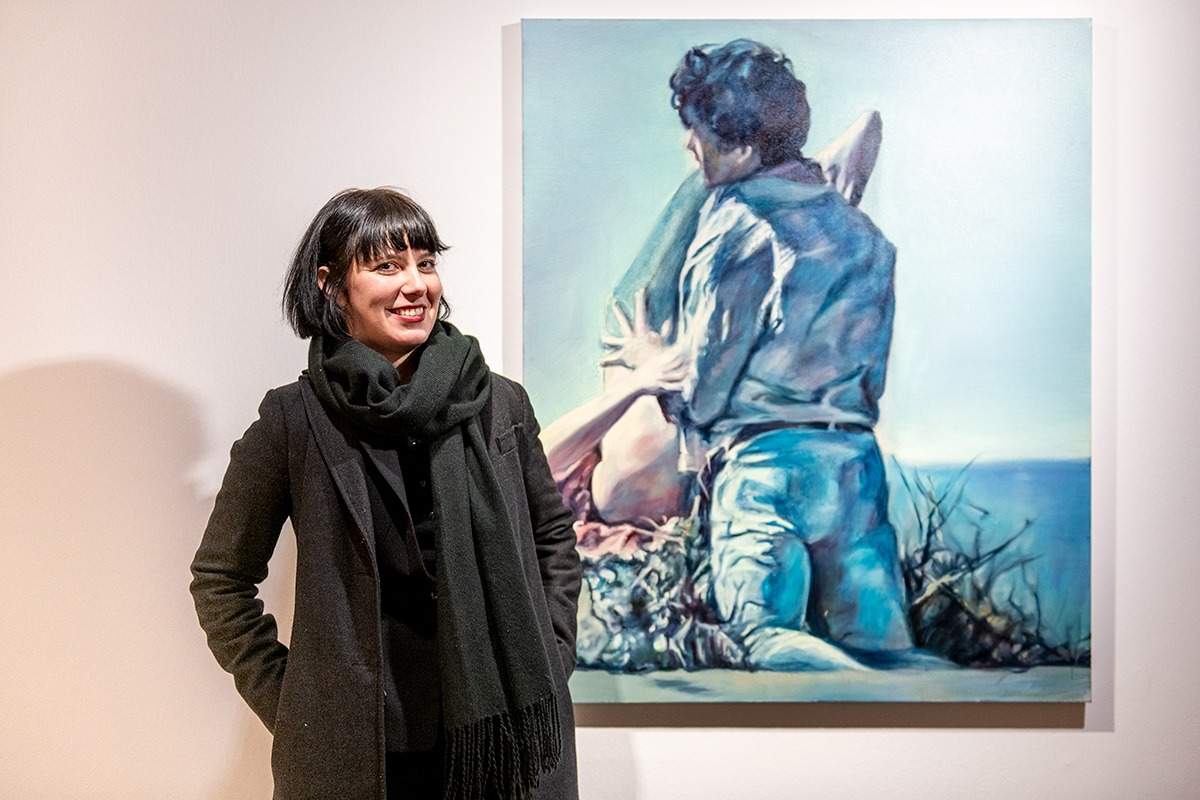Iva Lulashi will represent Albania at the 2024 Biennale. Her project will be about sex and love
It will be the young Iva Lulashi (Tirana, 1988) who will representAlbania at the Venice Biennale 2024. The painter, who was born in Albania and moved to Italy as a child, did all her training here and works in our country: in fact, she graduated in 2016 from the Academy of Fine Arts in Venice, lives and works in Milan and is part of the stable of the Milan-based Prometeo Gallery. So there will be quite a bit of Italy in the Pavilion of Albania, which has entrusted the entire project to the 35-year-old from Tirana.
And Italian is also the pavilion’s curator, Antonio Grulli. The exhibition is titled Love as a glass of water. In fact, in her project for the Albania Pavilion, Iva Lulashi evokes the “theory of the glass of water.” This theory, dating from the pre-revolutionary Russian period and linked to feminist thinker Alexandra Kollontai (1872 - 1952), is based on the idea of a sexual revolution in which impulses are perceived as a simple necessity to be satisfied as carefree as drinking a glass of water. Kollontai’s theory had great influence in artistic circles of those years but was immediately opposed by the revolutionary political apparatus.
The pavilion will therefore talk about sex and love, themes that have long been central to Lulashi’s research. Water is the fundamental condition of life, just like love, and both life and love move in a continuous state of fragility. Love, sex and desire can give meaning or ruin our lives, and they are the one great eternally revolutionary reality, telluric by its constitution, over which power, whether political, economic or ideological, fails to firmly impose its control. The force of these elements, Grulli explains, “is suprapolitical and existential, similar to that of water, elusive, sometimes peaceful, but capable of breaking down any obstacle.”
Iva Lulashi’s work revolves precisely around these universal subjects capable of transcending differences and transcending boundaries, not only geographical ones. The images in her paintings are generally taken from film and video stills that serve as detonators of the painting; they are populated mostly by female bodies and suggest situations potentially related to the erotic act without explicitly showing it, thus provoking a state of tension and ambiguity. “The ability to find and recreate images is one of the artist’s strengths,” according to Grulli. “His style mixes the Albanian painting tradition (made up of important figures now recognized internationally) with the Italian and Venetian route. The paintings at first glance emerge for their ’photographic’ attitude, while at a closer look they manifest themselves as strongly painterly, made of a livid liquidity, of synthetic brushstrokes devoid of any affectation, leaving many parts of the painting deliberately unresolved and almost abstract. They are a song to female desire, with all that it still carries in terms of fear, hope, desire for freedom, dark sides, vitality. Themes inseparable from a past that is not yet past, laden with truly global problems and political issues that we have to deal with every day and every night.”
For a Biennale in which the theme will be Strangers Everywhere, the presence of Iva Lulashi, who was born in Albania but moved to Italy at a very early age, where in Venice she studied together with peers from all over the world, was deemed particularly in line. Great anticipation, then, to see what she will bring.
 |
| Iva Lulashi will represent Albania at the 2024 Biennale. Her project will be about sex and love |
Warning: the translation into English of the original Italian article was created using automatic tools. We undertake to review all articles, but we do not guarantee the total absence of inaccuracies in the translation due to the program. You can find the original by clicking on the ITA button. If you find any mistake,please contact us.




























